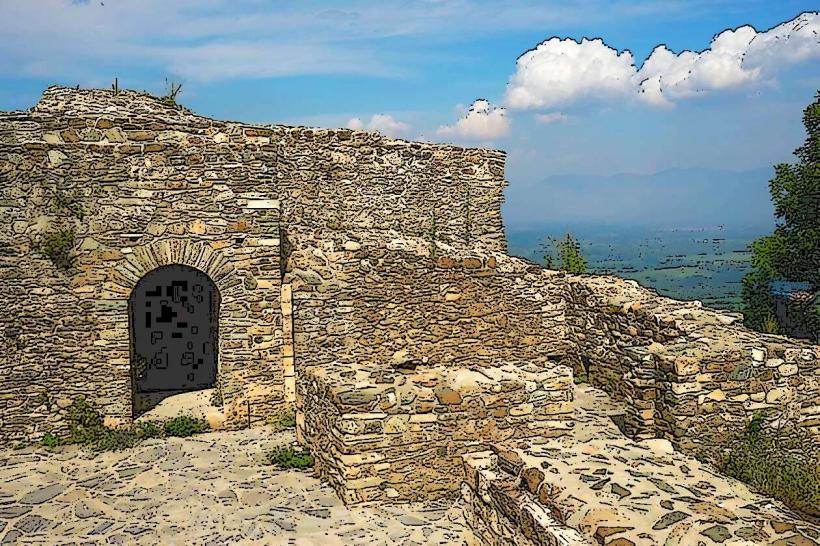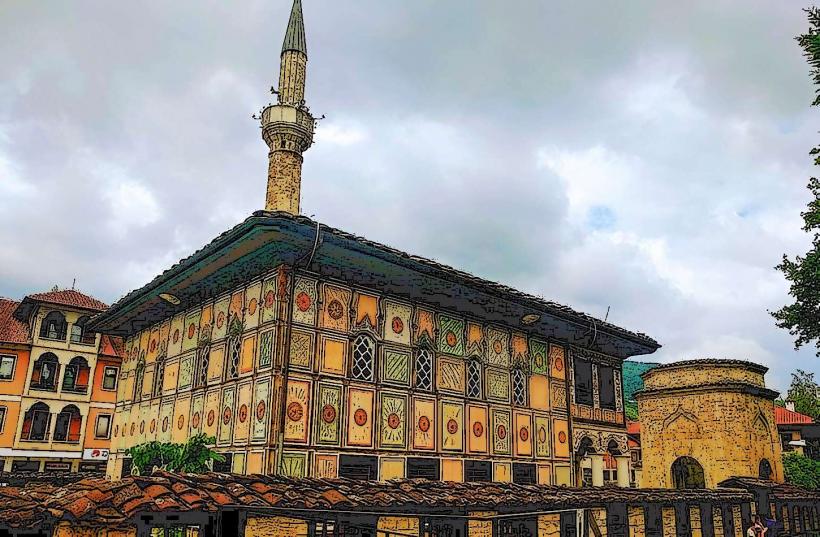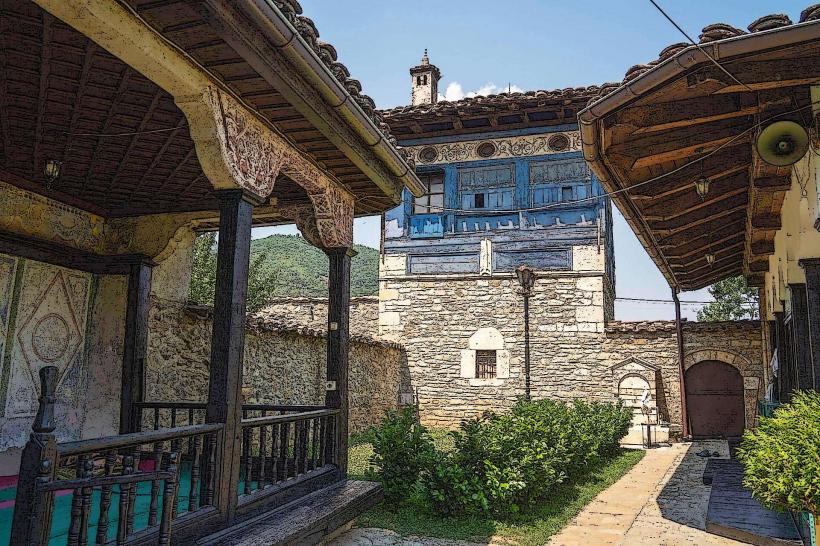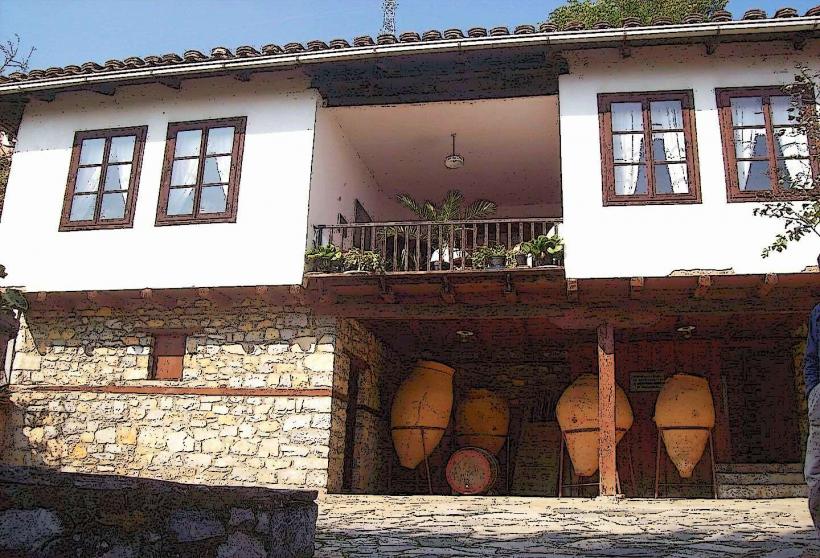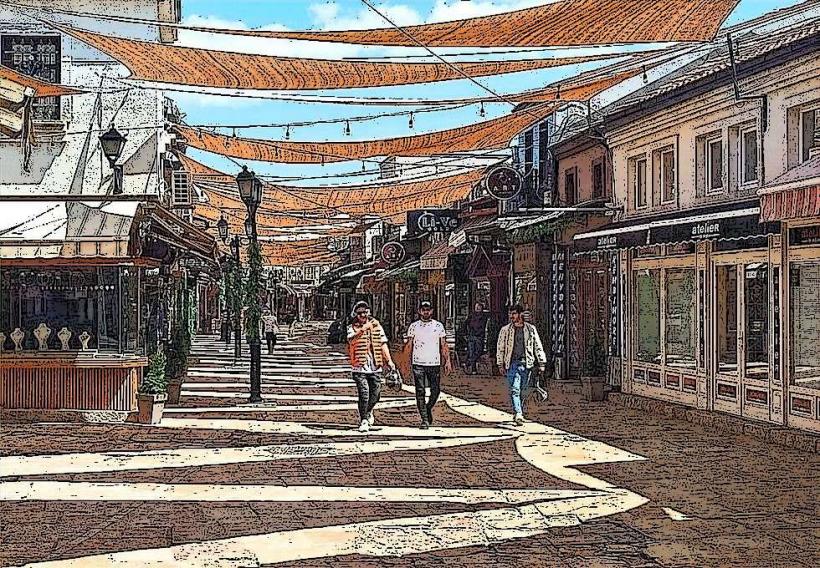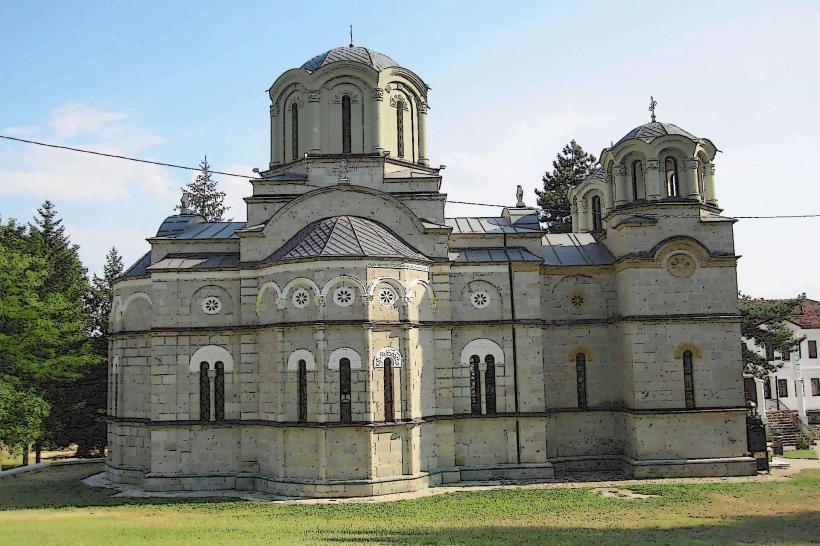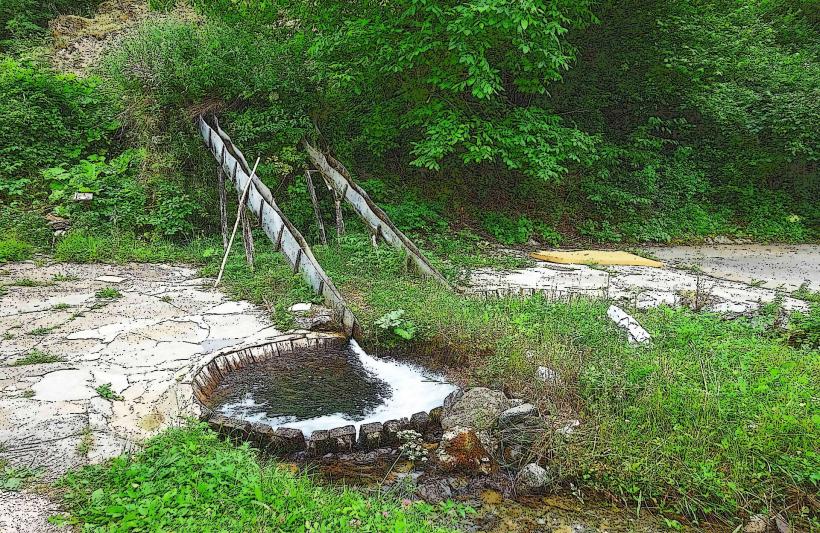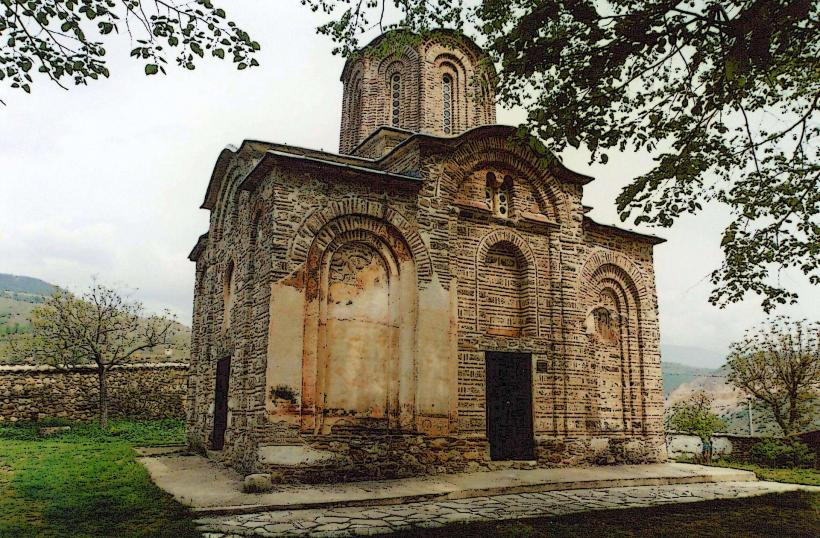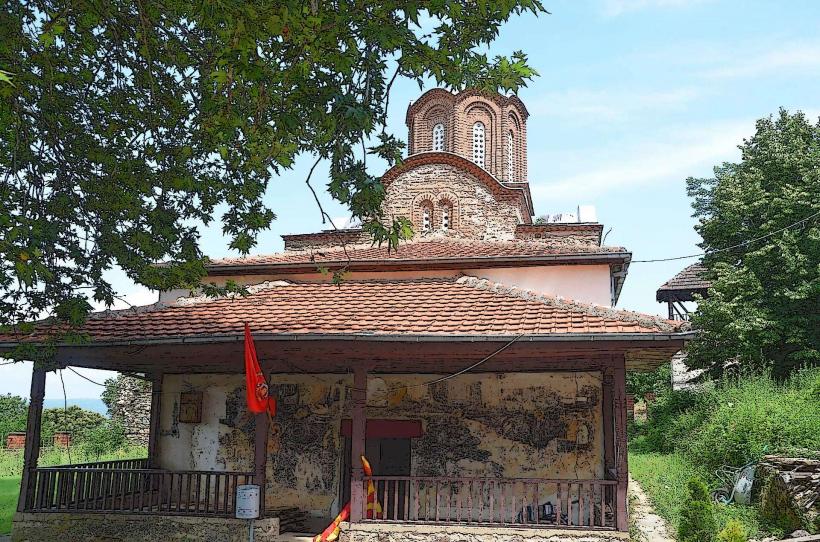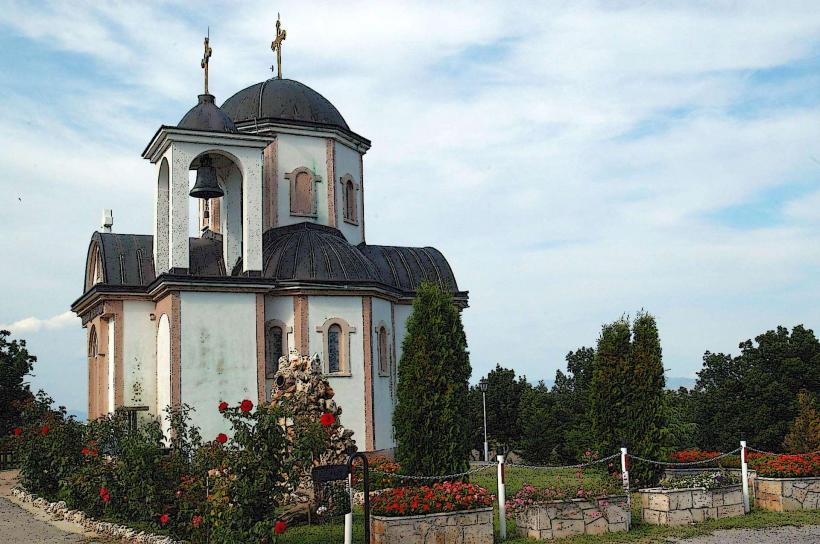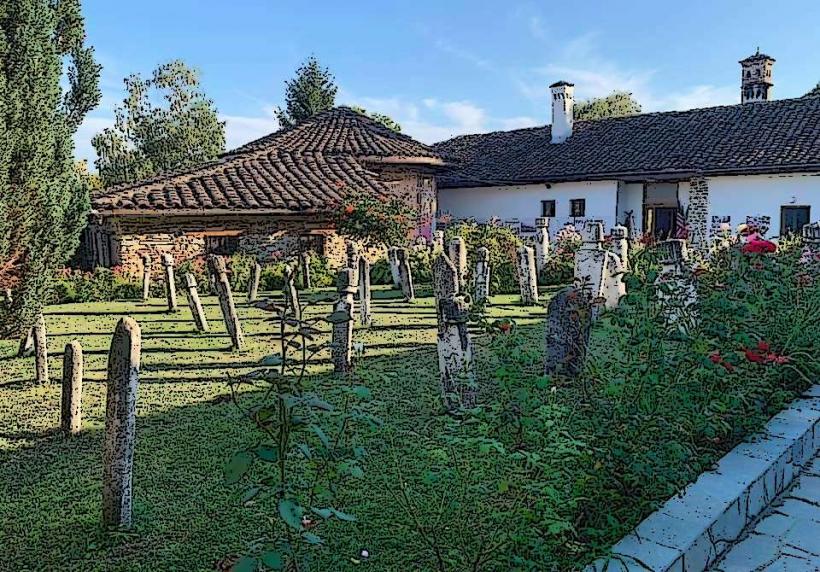Information
City: TetovoCountry: North Macedonia
Continent: Europe
Tetovo is a city located in the northwestern part of North Macedonia, close to the border with Kosovo and Albania. It is the administrative center of the Tetovo Municipality and is known for its diverse cultural heritage, natural beauty, and role as a regional hub. Below is a detailed overview of Tetovo, excluding its specific landmarks:
Geography and Climate
Tetovo is situated at the foot of the Shar Mountains, near the Lepenec River. The city is located in a valley that provides fertile lands for agriculture, while the surrounding mountains offer scenic landscapes and outdoor recreational opportunities.
Climate: Tetovo experiences a continental climate with Mediterranean influences, characterized by hot summers and cold, snowy winters. Summer temperatures often range from 25°C to 35°C (77°F to 95°F), with the surrounding mountains providing cooler air in the evenings. Winters can be quite cold, with temperatures often falling below 0°C (32°F), and snow is common in the winter months.
Topography: The city's elevation is around 500 meters (1,640 feet) above sea level, but the nearby mountains rise much higher, making the area an attractive destination for nature lovers, hikers, and outdoor enthusiasts.
History
Tetovo has a long and rich history, with evidence of human habitation dating back to ancient times. The city has been influenced by various cultures and civilizations over the centuries, including the ancient Illyrians, Romans, Byzantines, and Ottomans.
Ancient and Medieval Periods: The area around Tetovo was historically inhabited by the Illyrians and later became part of the Roman and Byzantine empires. During the medieval period, Tetovo was a significant center for the Medieval Macedonian Kingdom and later under Ottoman rule.
Ottoman Era: Tetovo developed significantly during the Ottoman period, particularly between the 15th and 19th centuries. The city was an important trade and administrative center in the region, and it was home to a large number of Ottoman structures, including mosques, schools, and inns.
Modern History: After the fall of the Ottoman Empire, Tetovo became part of the Kingdom of Yugoslavia and, later, the Socialist Republic of Macedonia. Following North Macedonia's independence in 1991, Tetovo continued to grow and modernize, becoming an important regional center.
Economy
Tetovo’s economy is primarily based on agriculture, industry, and trade, with a significant focus on small and medium-sized enterprises (SMEs). The city's economy is gradually diversifying, with particular attention to development in the manufacturing, retail, and services sectors.
Agriculture: Tetovo is located in a fertile valley that supports agricultural activities, including the cultivation of fruits, vegetables, and cereals. The region also produces tobacco, although it is not as significant a crop as in other parts of North Macedonia.
Industry: The industrial sector in Tetovo includes textile production, metalworking, food processing, and the production of building materials. The city is also home to several small factories producing consumer goods and industrial products.
Services and Retail: Tetovo has a growing service sector, particularly in retail, healthcare, education, and tourism. The city is known for its bazaars and markets, where locals and visitors can buy a variety of goods, including food, clothing, and handicrafts.
Culture
Tetovo has a diverse cultural heritage, influenced by its ethnic composition, which includes ethnic Albanians, Macedonians, and smaller minority groups. The city reflects the cultural blending of its people, with both Islamic and Christian traditions playing a role in the city’s cultural identity.
Ethnic and Religious Diversity: The population of Tetovo is predominantly ethnic Albanian, with a significant Muslim majority. There is also a sizable Macedonian Orthodox Christian community, which contributes to the city's cultural diversity. The city celebrates both Muslim and Christian holidays, and there are various religious festivals that are observed by different communities.
Music and Arts: Tetovo has a strong tradition in folk music, particularly Albanian and Macedonian folk songs, as well as classical music. The city hosts a number of cultural events, festivals, and performances throughout the year. Tetovo’s Music Festival and local performances often highlight regional music, dance, and art. The city is also home to a number of artists and artisans, with local handicrafts such as embroidery, ceramics, and woodwork being important elements of Tetovo’s cultural heritage.
Literature: Tetovo has been home to several writers, poets, and intellectuals, particularly from the Albanian and Macedonian communities. Literature plays an important role in the city's cultural life, and there are numerous cultural events focused on promoting local literature and the arts.
Education
Tetovo is an educational center in the region, with a variety of institutions offering primary, secondary, and higher education.
University of Tetovo: The University of Tetovo is one of the largest and most important universities in North Macedonia. Established in 2000, it offers programs in a range of disciplines, including law, engineering, economics, humanities, and medical sciences. The university plays a central role in the city’s education system and attracts students from across the country and the broader Balkan region.
Secondary Education: Tetovo has a number of high schools that offer a variety of programs in science, arts, and technical subjects. These schools prepare students for higher education or provide them with vocational training to enter the workforce.
Cultural Exchange and International Collaboration: Tetovo encourages cultural and educational exchanges, with many students participating in programs that foster collaboration between North Macedonia and other countries in the region and abroad.
Religion
Tetovo’s religious composition reflects the city’s diverse population, with a majority of Muslims, primarily ethnic Albanians, as well as a significant Christian Orthodox minority, primarily ethnic Macedonians.
Islam: The majority of the population in Tetovo is Muslim, and the city has numerous mosques and Islamic cultural sites. The influence of the Ottoman Empire is evident in the city's religious life, with many mosques dating back to the Ottoman period. The Tetovo Mosque, with its stunning architecture, is one of the city’s most significant religious sites.
Christianity: The Christian Orthodox population in Tetovo is represented by several churches, including the Church of St. Cyril and Methodius, which is a focal point for Orthodox Christians in the city. Religious holidays, such as Christmas and Easter, are celebrated by the Orthodox community, while the Muslim community observes major Islamic holidays like Eid al-Fitr and Eid al-Adha.
Religious Harmony: Tetovo is known for its religious tolerance, where different religious groups live side by side in a spirit of mutual respect. Despite differences in faith, the people of Tetovo coexist peacefully, and there is a tradition of interfaith dialogue and cooperation.
Tourism and Recreation
Tetovo has the potential for growth in tourism, with its natural beauty, historical sites, and cultural diversity attracting visitors.
Historical and Cultural Sites: Tetovo is home to various historical landmarks, many of which reflect its Ottoman and medieval past. Visitors can explore the Tetovo Bazaar, visit the numerous mosques, and enjoy the city’s vibrant atmosphere.
Outdoor Activities: Tetovo is surrounded by natural beauty, including the Shar Mountains and nearby nature reserves. These areas are ideal for hiking, skiing, and camping. The nearby Lake Tetovo and the surrounding countryside offer additional opportunities for outdoor recreation, such as fishing, birdwatching, and nature walks.
Cultural Festivals: Tetovo hosts a range of cultural festivals that showcase its ethnic diversity, including events focused on music, dance, and local traditions. These festivals attract tourists and locals alike, celebrating the city's rich heritage.
Challenges and Future Outlook
Tetovo faces several challenges related to economic development, urbanization, and environmental sustainability.
Economic Development: While Tetovo has experienced some growth in its economy, particularly in agriculture and services, there is still a need for further diversification in its industrial base. The city is working on improving infrastructure and attracting investments to support its long-term economic development.
Urbanization and Infrastructure: Tetovo is experiencing urban growth, which has put pressure on its infrastructure and public services. As the population increases, the city will need to invest in modernizing its roads, public transport, and utilities to meet the needs of its residents.
Environmental Sustainability: As the city develops, it faces environmental challenges, particularly with air pollution and waste management. Addressing these issues will be important for ensuring that Tetovo remains a livable and sustainable city in the future.
Conclusion
Tetovo is a city that blends a rich cultural heritage with a growing economy and modern development. Its diverse population, historical significance, and beautiful natural surroundings make it an important city in North Macedonia. While there are challenges ahead, including the need for economic diversification and infrastructure improvements, Tetovo’s unique cultural identity, religious harmony, and potential for tourism make it a city to watch in the coming years.

